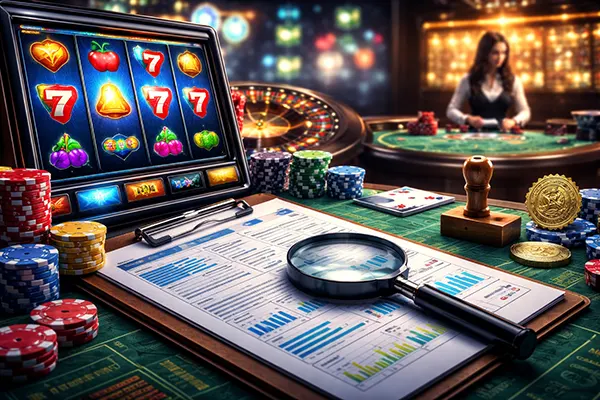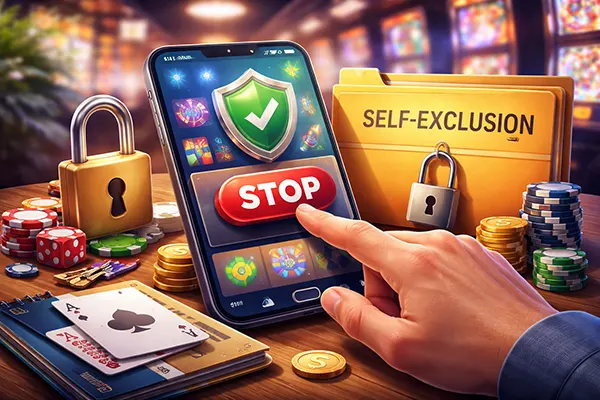Games with Live Dealers: Pros, Cons, and Whether You Should Switch to the Live Format

In 2025, live dealer games stand as one of the strongest trends in the gambling industry. These games combine the thrill of real-time play with the accessibility of online gambling, creating a bridge between digital convenience and authentic casino interaction. Unlike traditional virtual tables powered by RNG, live games feature real human dealers broadcast from professional studios, bringing realism and transparency to every hand or spin.
The Growing Popularity of Live Dealer Games
Over the past few years, the live dealer format has experienced rapid growth across Europe, particularly in regions like Scandinavia and the UK. Players are increasingly choosing live games such as blackjack, roulette, and baccarat because they offer not just entertainment but also trust — every move is visible and verifiable. Top-tier studios from providers like Evolution and Pragmatic Play Live have set new industry standards in production quality and fairness.
Modern technology has played a key role in this evolution. High-definition streaming, multi-camera angles, and advanced interface design have allowed live games to operate smoothly even on mobile devices. In 2025, nearly 80% of live game sessions are accessed via smartphones, making mobile compatibility an essential factor for providers and players alike.
Furthermore, live dealer games now integrate features such as in-game statistics, multi-table play, and interactive side bets. These elements enhance player engagement and make each round more dynamic. With operators investing heavily in expanding their studios and hiring professional croupiers, the live segment continues to gain credibility among both casual and experienced players.
Advantages of Choosing Live Dealer Games
One of the main benefits of live dealer games is authenticity. Players can interact directly with professional dealers and even chat with other participants, recreating the social atmosphere of a physical casino. This interaction fosters trust and makes gaming sessions more engaging and personal.
Another key advantage lies in fairness. Every action — from shuffling cards to spinning the roulette wheel — is performed live under surveillance. Studios are licensed and monitored by regulatory authorities, and reputable providers follow strict compliance standards. This transparency eliminates doubts about manipulation, which can sometimes arise in fully automated games.
Finally, the entertainment value of live games is unmatched. Many studios introduce unique formats such as game shows — for example, Crazy Time or Monopoly Live — that combine gambling with interactive entertainment. These hybrid titles attract a wider audience, turning traditional gameplay into a full experience suitable for both beginners and seasoned players.
Challenges and Limitations of Live Dealer Formats
Despite its strengths, live dealer gaming also comes with certain limitations. The most common issue is technical stability. High-quality streaming requires a reliable internet connection; otherwise, players may experience lag or disconnections during gameplay. Although technological improvements have reduced these occurrences, occasional delays can still affect the overall experience.
Another drawback is the limited speed of play. Unlike RNG-based games where rounds can be completed in seconds, live dealer sessions follow a real-time pace managed by human dealers. For some players, this adds to the realism, but for others it might feel too slow, especially during peak hours when tables are full.
In addition, not all live dealer titles are available 24/7 or in all jurisdictions. Due to local regulations, some regions restrict access to live studios, and time-zone differences can influence the availability of native-language tables. Operators continue to expand their infrastructure to overcome these challenges, but full global coverage remains a work in progress.
Technical and Practical Considerations
Players should also consider the technical setup required for the best experience. A stable broadband or 5G connection is essential for uninterrupted streaming in HD quality. Most studios now optimise their software for both desktop and mobile use, ensuring smooth transitions across devices, but older hardware may still struggle with heavy video processing.
On the operator side, running a live studio is significantly more expensive than maintaining standard digital games. Each table needs multiple cameras, real staff, and maintenance teams, resulting in higher operational costs. Consequently, betting limits in live games are often higher than in their virtual counterparts.
Finally, while the live format adds realism, it lacks the anonymity and instant pace some players prefer. There’s also no option to play offline, as every session requires constant connectivity. This balance between realism and practicality remains a decisive factor when choosing whether to switch to live dealer games.

Future Outlook and Player Perspectives in 2025
The future of live dealer gaming looks bright. With the rise of augmented reality (AR) and virtual reality (VR) technologies, several developers are already testing 3D live environments where players can virtually “sit” at the table using VR headsets. By 2025, these innovations are expected to become more accessible and integrated into mainstream gambling experiences.
Additionally, responsible gaming tools are being actively incorporated into live platforms, allowing users to monitor their time and spending in real time. Transparency and user control are now central to regulatory frameworks, ensuring that live gaming evolves not only in terms of technology but also in social responsibility.
Ultimately, the decision to switch to live dealer games depends on personal preference. For players who value human interaction, trust, and immersive gameplay, live formats provide unmatched advantages. However, those seeking faster rounds or offline access may still prefer traditional digital games. The growing diversity of options ensures that every player can find the format best suited to their style and comfort.
What to Expect Moving Forward
In the coming years, the live gaming market will likely continue to expand beyond classic table games. Expect more show-style content, regional studios with native speakers, and cross-integration with digital payment systems offering instant deposits and withdrawals. These improvements will make the live format even more accessible and appealing.
Industry experts predict that by 2026, live games could account for more than half of total online table game revenue. This growth will be driven not only by innovation but also by trust — the key factor that continues to attract players worldwide. Live dealer games have become a symbol of transparency, professionalism, and progress within the gambling industry.
Therefore, switching to the live format is not just a trend — it’s a reflection of how the industry adapts to the demand for realism and connection. For many, the experience of engaging with a real dealer remains irreplaceable, and the technological progress of 2025 ensures that this experience is now smoother, safer, and more exciting than ever before.




